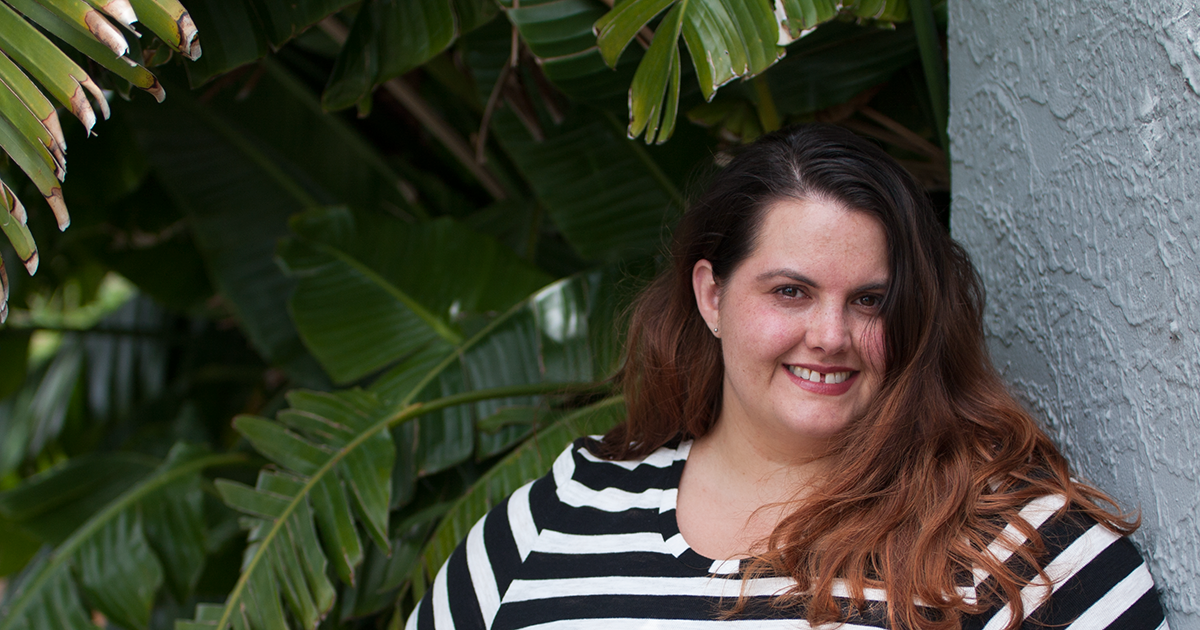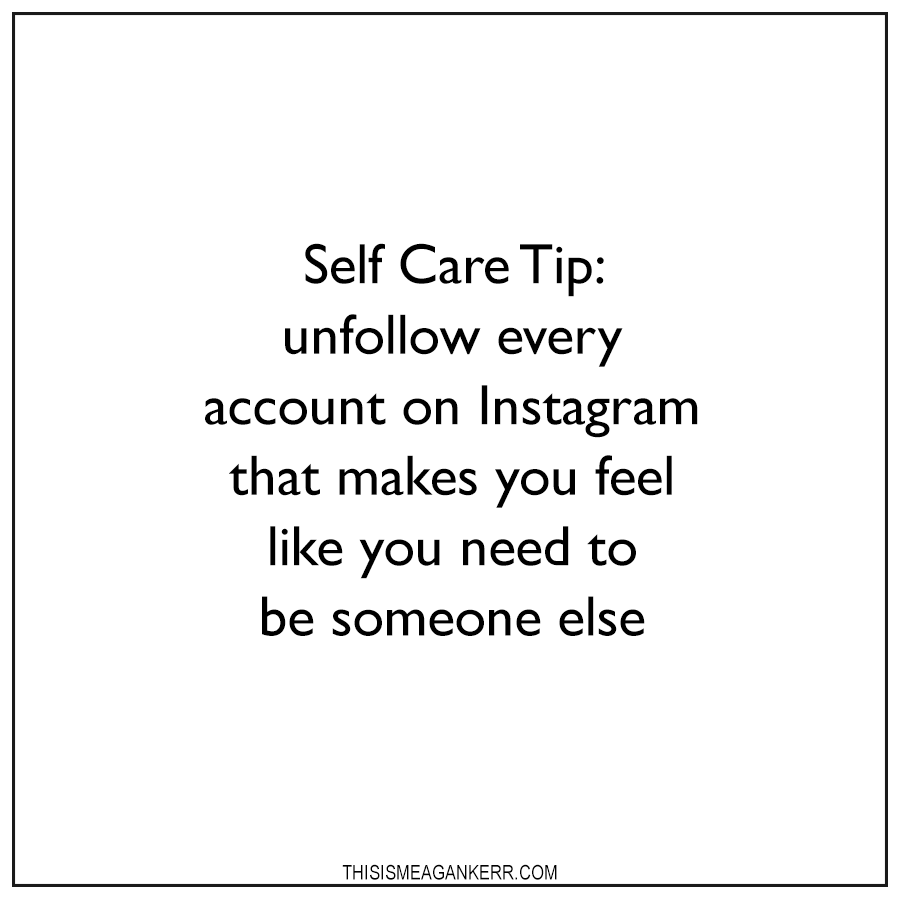
A 2015 study from Common Sense Media about Children, Teens, Media and Body Image reported that 80% of 10-year-old girls have been on a diet. The research also found that more than half of girls and one-third of boys ages six to eight want thinner bodies. I just want to let that sink in for a moment – this is children we are talking about. So I would be surprised if anyone made it to adulthood without at least being aware of the pressure that is placed upon people to look a certain way. Where are kids learning these behaviours? Where are they picking up the idea that thinner bodies are better bodies? The same as adults, these are behaviours that we learn from the things, people and events around us.
We have a lot of people and things in our lives that influence how we see ourselves and our world, including family, friends, film and television, magazines, the people we follow on social media, teachers, and coaches to name a few. If all (or most) of those influencers are saying something negative about your body type, then it’s inevitable that those messages are going to start seeping through – no matter what age you are. As our media landscape has already proven, being bombarded with messages about striving for “the perfect body” has horrifying results. Part of my journey to having a healthy relationship with my body involved recognising who/what the influencers were in my life, and reconsidering whether or not those influences were healthy ones or ones that were to my detriment.
When it comes to body image, there are a lot of things that can impact the way that we feel about our bodies – the glossy mags that move from slamming a celeb’s cellulite in one issue to their bikini body specials in the next, the models we see in magazines and on catwalks, TV shows, movies, music videos, our social media feeds and even our friends and family. All of these things go toward how we decide how we feel about our bodies. So how do you choose who to listen to and who to ignore?
My friend Tarryne describes those influencers as being like a committee, which I think is a great way to explain things. The committee is the voices in your head that make up your internal monologue – like when you hear your dad in the back of your mind reminding you that you should probably drink more water (real life example, my dad said that often when we were growing up); or that stylist who made the comment about how women should cover their upper arms and now every time you think of wearing a sleeveless top you see her disapproving face in your mind (also a real life example).

You get a say on who is on your committee – is it your friends, the magazines you read, the blogs you follow, your partner, your doctor, or even your parents? You’re the head of the committee and you get to decide who gets to stay and who doesn’t. Sometimes that means changing your media consumption – magazines make you feel shitty about your body? STOP READING THEM. Finding that all of the #fitspo accounts you’re following on Instagram make you feel bad about your body? HIT UNFOLLOW. You have the power to control who is on that committee, so make it one full of people who empower you rather than bring you down. This is not just in relation to your body image by the way, we need those positive voices in all aspects of life.
Emotional real estate – who gets a say?
Just because someone is family or a friend, that doesn’t give them an automatic right to be on your committee. In fact, none of my family is on my committee anymore because many of them often said negative things about me, about my body, about other people’s bodies, about their own bodies. They weren’t positive influences on my self image, and more often than not I found myself taking those things on board as truths, even when they weren’t. I still love them, and look to them for advice on other matters, but they don’t get to influence how I feel about myself or my body anymore.
I know it’s not easy to block those voices out (especially if it’s a friend or a family member that you’re close to or someone you look up to), so I find it helpful to actively remember the committee example. When negative thoughts come up, I think about where that’s coming from, whose voice it is. If it’s from something my family members have said to me, or that I’ve seen on social media or read in a magazine, I stop and catch myself. I remind myself that they’re not on my committee. And then I think about what someone who is on my committee would say if someone said that to them (or to me in front of them), or what advice they’d give to me (what would Glam do/say?). My committee empowers me, they make me feel strong and good about myself. They are encouraging, they are my champions (in real life as well, not just in my head!).
The negative committee
Sometimes we have a committee that is very negative, even when we have decided on our positive committee. We need to take a moment to recognise who or what is part of that committee so that when they speak up with their negativity we can remove them as influences. Those voices crop up when we least expect it, and they are MEAN. Remember how I talked about stopping the negative self talk? These are the voices that fuel that, they trigger our self doubt and make us think we’re not good enough or can’t do things. They often speak up when we are at our lowest, or when we need the most support. When we are downright nasty to ourselves, when we remember every horrible thing ever said to or about us, those voices can be very loud and persistent. That negative committee is why you need to build a more positive committee – one who will replace those words of doubt with ones of encouragement.
Putting your committee in to action
Think of your committee as your cheerleaders. The voices in your head who urge you on, who encourage you to try new things, who clap when you succeed. If you mess up, they remind you that you’re still an okay human. As well as reinforcing my confidence and rooting for me, I use my positive committee to vanquish the negative thoughts that creep in (like Harry Potter using his patronus to drive away the dementors) on a day to day basis. Random person who left nasty comments on my social media today? Sorry Andrea, you’re not on my committee, be gone. Feeling a bit of self doubt when I’m in the changing room trying on a dress? Maybe I should cover up my arms like that stylist recommended, they are pretty wobbly and no one wants to see that, right? Nope, that stylist is not on my committee, be gone! Time to look at some of my fave body pos babes baring their arms and rocking it.
It’s not quite as easy as saying “fuck the haters, ignore them”, it more changing that internal dialogue and who/what we let inform our view of ourselves. Yes, it sucks when people say mean and hurtful things about you. But that doesn’t mean that those things are true or that they need to become part of your internal voice. Heck, if I took on all of the negative things that people said about me I would feel so shitty about myself that I’d never leave my bed. I know that I deserve better than that, so I am very selective about who I allow on my committee and you can be too.
Whose voices influence you?
Are they a positive or negative voice?


My friend Lou is a big inspiration for me – you might like her blog, this post in particular was very inspiring to me https://solongmarianne.blog/2018/01/14/skinny-ghosts/. You and all the others in the Style Curvettes group have been fantastic over the years.
Thanks so much for sharing that Lena, that’s a bloody great post (and so relateable). Glad to hear you’re loving the Style Curvettes group x
I really like the cheerleading committee idea. That 80% stat blew my mind too! Terrifying. Wise as always, Meagan xoxo